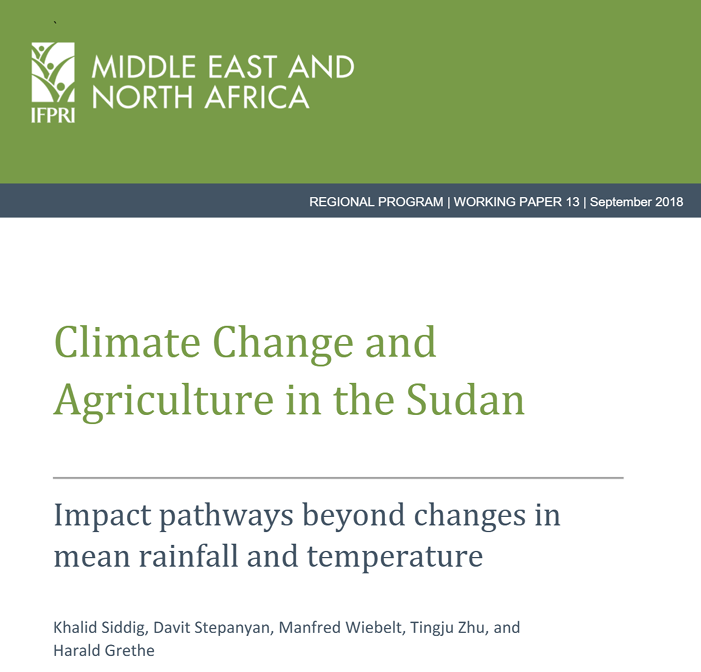
Sudan has experienced environmental changes such as increased temperature, floods, rainfall variability, and droughts, which significantly impact its agriculture-based economy. This study uses a suite of models, including the International Model for Policy Analysis of Agricultural Commodities and Trade (IMPACT), to analyse the effects of these changes and identify potential interventions. The models consider factors like climate forcing, water demand, and macro-socioeconomic trends to predict annual crop yields and global food prices under various climate change scenarios until 2050. A single country dynamic Computable General Equilibrium (CGE) model is used to assess the impacts on production, consumption, macroeconomic indicators, and income distribution in Sudan. The simulations suggest that while average projected climate changes could benefit Sudan, extreme negative variability could cost the country US$ 109.5 billion in total absorption and US$ 105.5 billion in GDP between 2018 and 2050 compared to a scenario without climate change.
This article was originally published by the International Food Policy Research Institute (IFPRI).